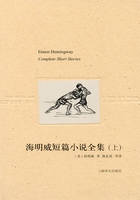"Then proudly, proudly up she rose,Tho" the tear was in her e"e,"Whate"er ye say, think what ye may,Ye"s get na word frae me!""
SCOTCH BALLAD.
It was not merely that Margaret was known to Mr. Thornton to havespoken falsely,--though she imagined that for this reason only was sheso turned in his opinion,--but that this falsehood of hers bore a distinctreference in his mind to some other lover. He could not forget the fondand earnest look that had passed between her and some other man--theattitude of familiar confidence, if not of positive endearment. Thethought of this perpetually stung him; it was a picture before his eyes,wherever he went and whatever he was doing. In addition to this (andhe ground his teeth as he remembered it), was the hour, dusky twilight;the place, so far away from home, and comparatively unfrequented. Hisnobler self had said at first, that all this last might be accidental,innocent, justifiable; but once allow her right to love and be beloved(and had he any reason to deny her right?--had not her words beenseverely explicit when she cast his love away from her?), she mighteasily have been beguiled into a longer walk, on to a later hour than shehad anticipated. But that falsehood! which showed a fatal consciousnessof something wrong, and to be concealed, which was unlike her. He didher that justice, though all the time it would have been a relief tobelieve her utterly unworthy of his esteem. It was this that made themisery--that he passionately loved her, and thought her, even with allher faults, more lovely and more excellent than any other woman; yethe deemed her so attached to some other man, so led away by heraffection for him as to violate her truthful nature. The very falsehoodthat stained her, was a proof how blindly she loved another--this dark,slight, elegant, handsome man--while he himself was rough, and stern,and strongly made. He lashed himself into an agony of fierce jealousy.
He thought of that look, that attitude!--how he would have laid his lifeat her feet for such tender glances, such fond detention! He mocked athimself, for having valued the mechanical way in which she hadprotected him from the fury of the mob; now he had seen how soft andbewitching she looked when with a man she really loved. Heremembered, point by point, the sharpness of her words--"There was nota man in all that crowd for whom she would not have done as much, farmore readily than for him." He shared with the mob, in her desire ofaverting bloodshed from them; but this man, this hidden lover, sharedwith nobody; he had looks, words, hand-cleavings, lies, concealment,all to himself.
Mr. Thornton was conscious that he had never been so irritable as hewas now, m all his life long; he felt inclined to give a short abruptanswer, more like a bark than a speech, to every one that asked him aquestion; and this consciousness hurt his pride he had always piquedhimself on his self-control, and control himself he would. So themanner was subdued to a quiet deliberation, but the matter was evenharder and sterner than common. He was more than usually silent athome; employing his evenings in a continual pace backwards andforwards, which would have annoyed his mother exceedingly if it hadbeen practised by any one else; and did not tend to promote anyforbearance on her part even to this beloved son.
"Can you stop--can you sit down for a moment? I have something to sayto you, if you would give up that everlasting walk, walk, walk."
He sat down instantly, on a chair against the wall.
"I want to speak to you about Betsy. She says she must leave us; that herlover"s death has so affected her spirits she can"t give her heart to herwork."
"Very well. I suppose other cooks are to be met with."
"That"s so like a man. It"s not merely the cooking, it is that she knows allthe ways of the house. Besides, she tells me something about yourfriend Miss Hale."
"Miss Hale is no friend of mine. Mr. Hale is my friend."
"I am glad to hear you say so, for if she had been your friend, whatBetsy says would have annoyed you."
"Let me hear it," said he, with the extreme quietness of manner he hadbeen assuming for the last few days.
"Betsy says, that the night on which her lover--I forget his name--for shealways calls him "he"----"
"Leonards."
"The night on which Leonards was last seen at the station--when he waslast seen on duty, in fact--Miss Hale was there, walking about with ayoung man who, Betsy believes, killed Leonards by some blow orpush."
"Leonards was not killed by any blow or push."
"How do you know?"
"Because I distinctly put the question to the surgeon of the Infirmary. Hetold me there was an internal disease of long standing, caused byLeonards" habit of drinking to excess; that the fact of his becomingrapidly worse while in a state of intoxication, settled the question as towhether the last fatal attack was caused by excess of drinking, or thefall."
"The fall! What fall?"
"Caused by the blow or push of which Betsy speaks."
"Then there was a blow or push?"
"I believe so."
"And who did it?"
"As there was no inquest, in consequence of the doctor"s opinion, Icannot tell you."
"But Miss Hale was there?"
No answer.
"And with a young man?"
Still no answer. At last he said: "I tell you, mother, that there was noinquest--no inquiry. No judicial inquiry, I mean."
"Betsy says that Woolmer (some man she knows, who is in a grocer"sshop out at Crampton) can swear that Miss Hale was at the station atthat hour, walking backwards and forwards with a young man."
"I don"t see what we have to do with that. Miss Hale is at liberty toplease herself."
"I"m glad to hear you say so," said Mrs. Thornton, eagerly. "It certainlysignifies very little to us--not at all to you, after what has passed! but I-Imade a promise to Mrs. Hale, that I would not allow her daughter togo wrong without advising and remonstrating with her. I shall certainlylet her know my opinion of such conduct."
"I do not see any harm in what she did that evening," said Mr. Thornton,getting up, and coming near to his mother; he stood by the chimney-piece with his face turned away from the room.















